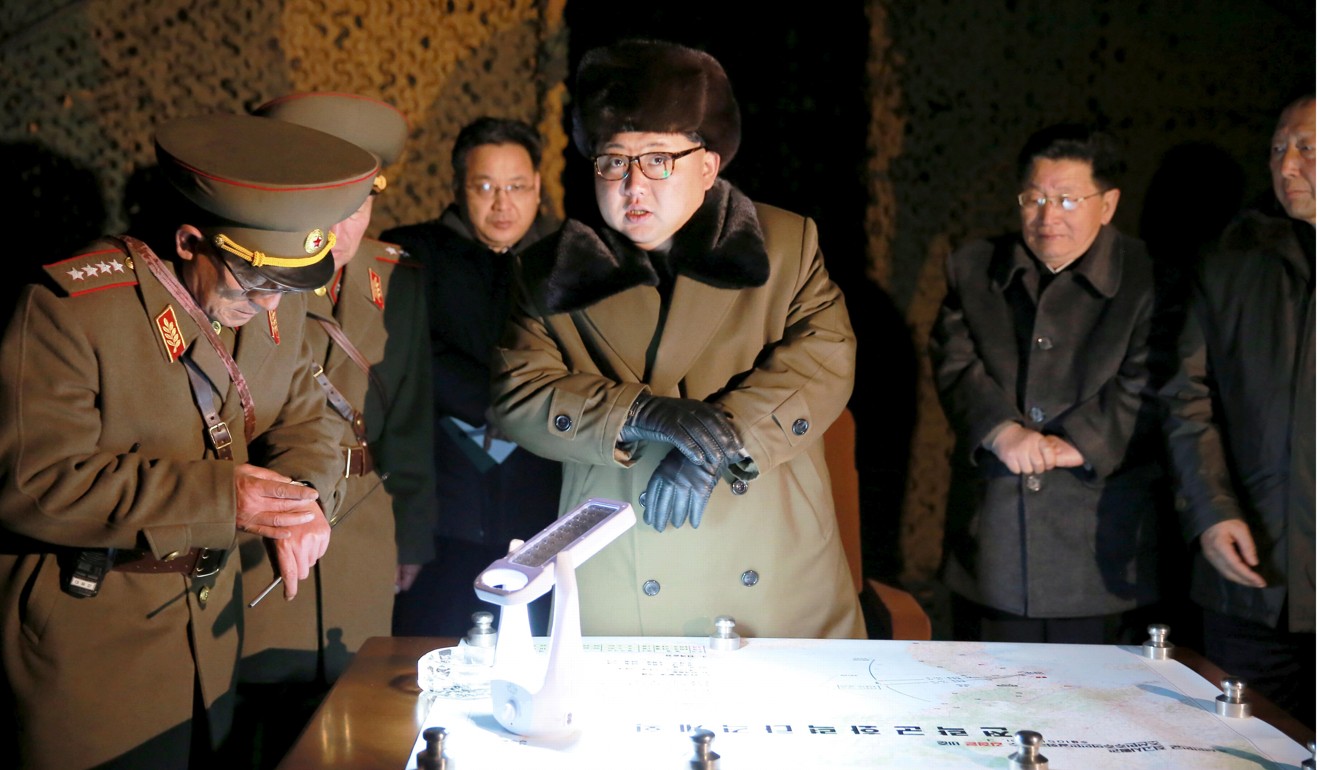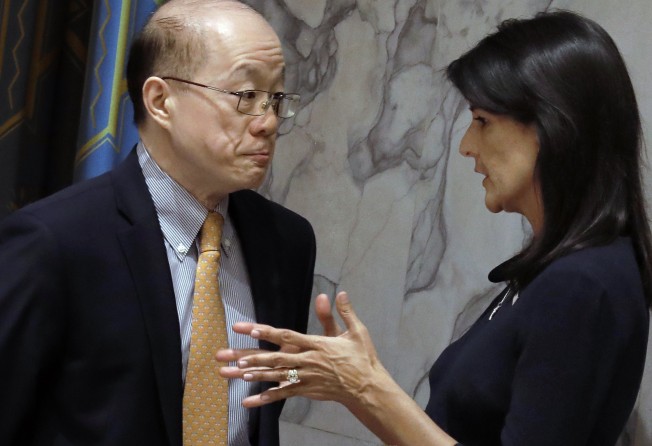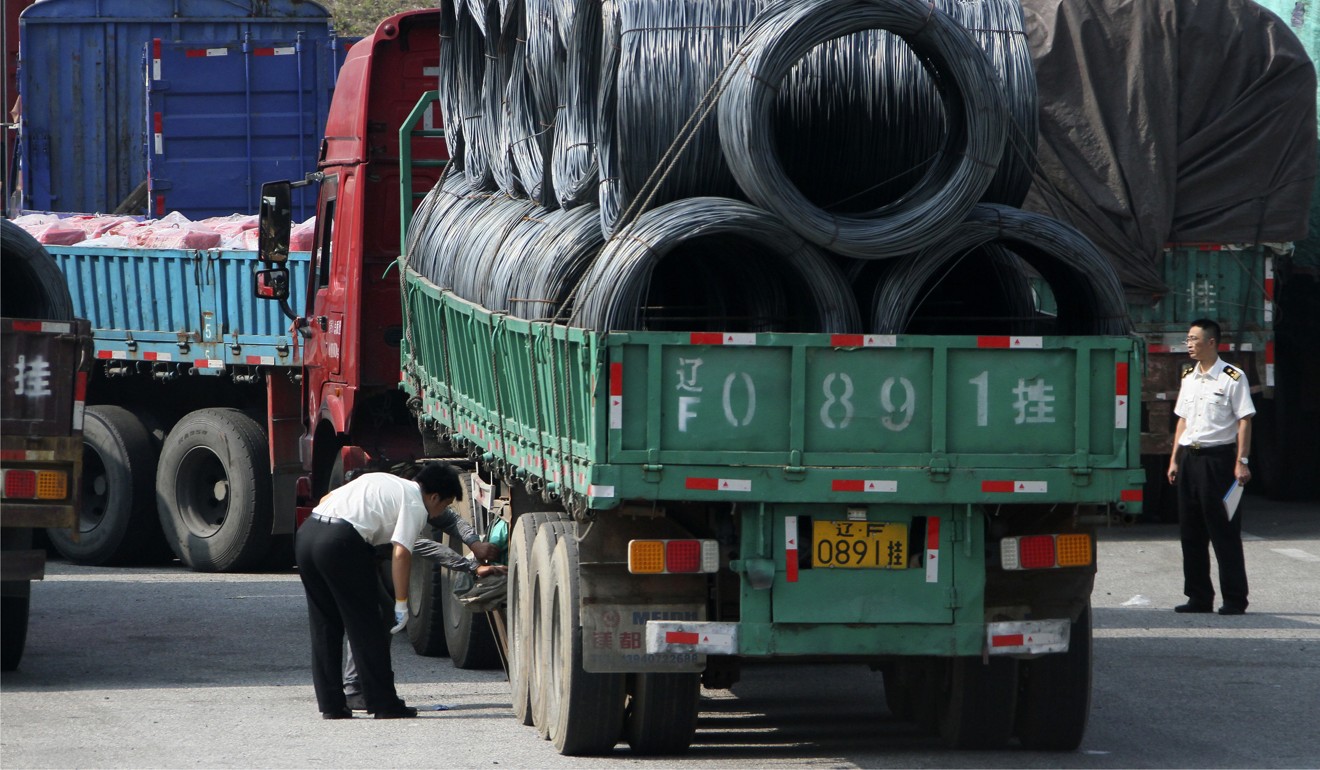
How Chinese diplomacy can shape US policy on North Korea
Zhang Baohui says Beijing must show Washington that only dialogue with North Korea, coupled with sanctions, will be effective in averting catastrophe

The world is at a critical juncture after North Korea’s sixth nuclear test. How the international community reacts to the latest provocation from Kim Jong-un will profoundly affect prospects for peace and stability.
While US President Donald Trump seems to have toned down his threat of war, he nonetheless rejects a diplomatic resolution. On August 30, he tweeted that “Talking is not the answer”. Instead, the Trump administration has been pushing for harsher sanctions, including a ban on the sale of oil and refined petroleum products to North Korea.
Even if China, the main supplier of oil to North Korea, supported this package, the international community may not have been able to force Kim to give up his nuclear programme. More likely, by cornering North Korea with truly strangling sanctions, the world may find itself heading towards the abyss of military conflict.
A more promising approach lies in diplomacy and sanctions working in tandem. In this regard, China should use its critical position to shape the world’s course of action. Specifically, Beijing needs to insist on the US committing to dialogue with North Korea as a condition for supporting any more sanctions.
Sanctions, including a ban on the sale of oil, cannot address the root cause of North Korea’s nuclear ambition. Fundamentally, North Korea is no different from other countries; they are all shaped by the same anarchic order of the international system, so-called because it lacks a centralised authority. This anarchic context makes all states insecure, and motivates them to adopt an assuming-the-worst mindset for their security. They tend to exaggerate external threats and are inclined to use all means available to provide for their own security.

Any attempts to resolve the nuclear quagmire must first address Pyongyang’s insecurity
Its quest for nuclear capabilities, which began with the dawning of the US-led unipolar system in the 1990s, is an inevitable response to the power imbalance and the consequent insecurity. Indeed, even the US, as the world’s most powerful country, feels insecure and insists on possessing more nuclear weapons than others.
Therefore, any attempts to resolve the North Korean nuclear quagmire must first address Pyongyang’s insecurity. Diplomacy, not sanctions, is the pathway towards greater security for North Korea. In contrast, Trump’s plan to cut off oil supply will only aggravate Pyongyang’s insecurity and strengthen its determination to hold onto its nuclear programme. As Russian President Vladimir Putin rightly warned, North Korea would choose to “eat grass” before giving up its nuclear programme.
Watch: Putin says North Korea would rather ‘eat grass’
To resolve this nuclear quagmire, the US needs to provide measures that reduce Pyongyang’s insecurity. This requires Washington to engage and assure North Korea the US intends it no harm. The best way to assure North Korea about its security is to end the cold war situation between the two countries.
North Korea has repeatedly signalled that appropriate US measures, like a peace treaty to formally end the Korean war and normalisation of relations between the two countries, could create the conditions for a freeze of its nuclear and missile programmes.
In May, Choe Son-hui, head of the North Korean foreign ministry’s North America bureau, told reporters that a North Korea-US dialogue could be held “if conditions are met”.
In June, Kye Chun-yong, North Korea’s ambassador to India, put it more explicitly, saying, “Under certain circumstances, we are willing to talk in terms of freezing our nuclear and missile testing.”

While US diplomatic engagement may offer hope for the nuclear quagmire, truly strangling sanctions that involve cutting off oil supplies could gravely destabilise the Korean peninsula and world peace. It is North Korea’s pattern to push back hard against external pressure. In fact, it has already promised “more gift packages” to the US to retaliate against new sanctions. At the very least, Pyongyang could show defiance through more nuclear and missile tests, further cornering the Trump administration.
Even worse, North Korea may resort to its old brinkmanship game to force the world to back off. It may threaten direct but limited military actions against US allies in the region, provoking a security crisis. Now nuclear-armed, North Korea’s brinkmanship would generate tremendous pressure on the decision-makers in Washington, Tokyo, Seoul and Beijing. They would face the stark choice of either war, which could involve the nuclear scenario, or humiliating compromises with Pyongyang.
Its peculiar role in the situation requires Beijing to tell the Trump administration that world peace is at stake
To avert this dangerous scenario, China has a critical role to play. Beijing has long championed a dual-track strategy to resolve the quagmire. As argued by foreign minister Wang Yi on September 7, sanctions and diplomacy must go hand in hand. Indeed, Beijing has lobbied the Trump administration to agree to diplomatic engagement with North Korea.
Now, Beijing has a unique opportunity to shape US policies towards North Korea. China should insist on Washington committing to a diplomatic strategy while supporting any new UN sanctions. Indeed, before the Security Council adopted the latest sanction package, involving a significant cut in oil going to North Korea, China had exerted unprecedented efforts to nudge Washington towards simultaneous diplomatic efforts. This included President Xi Jinping’s personal efforts during a telephone discussion with Trump last week.
China owes this to the world. Its peculiar role in the situation requires Beijing to tell the Trump administration that world peace is at stake and that everyone, including the US, must exhaust all diplomatic means to make it possible to peacefully resolve the North Korean nuclear quagmire.
Zhang Baohui is a professor of political science and director of the Centre for Asian Pacific Studies at Lingnan University in Hong Kong. He is the author of China’s Assertive Nuclear Posture: State Security in an Anarchic International Order